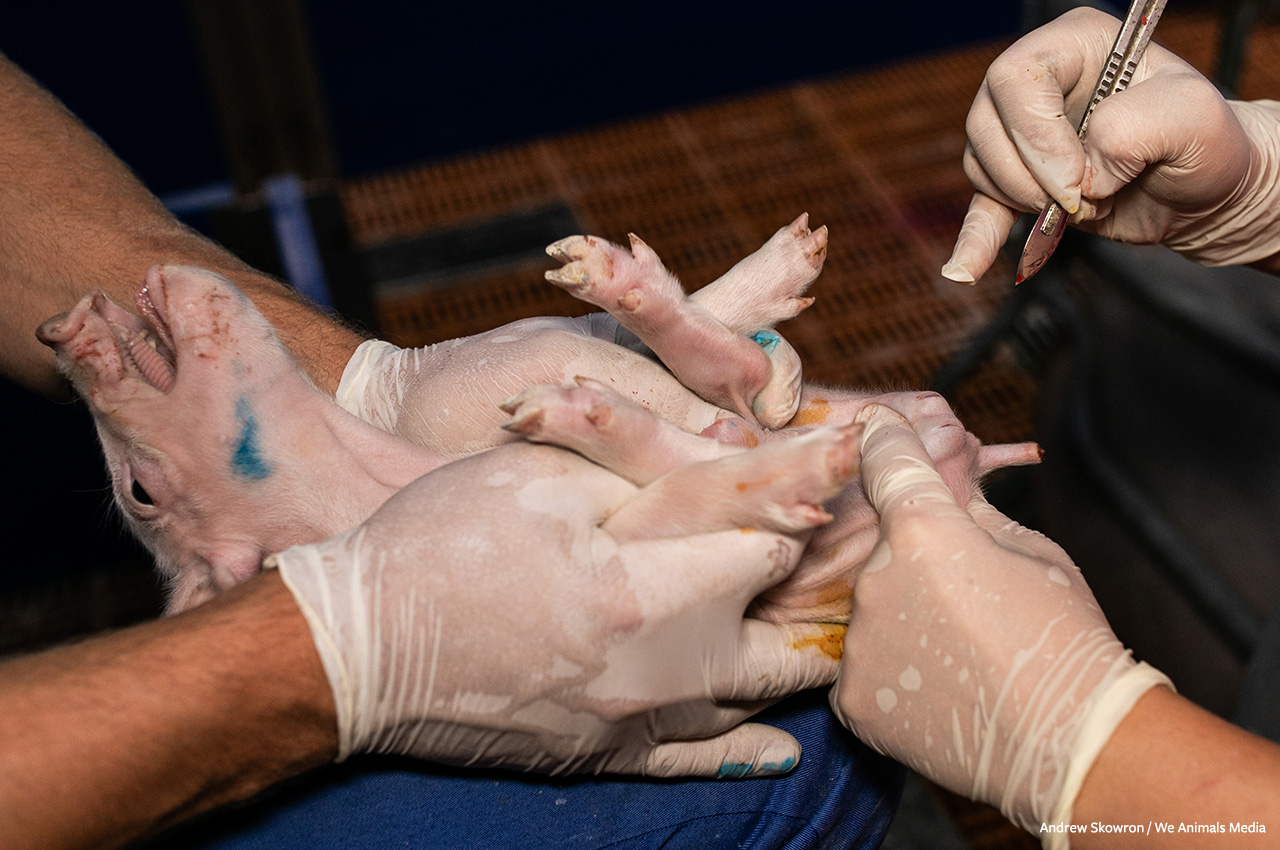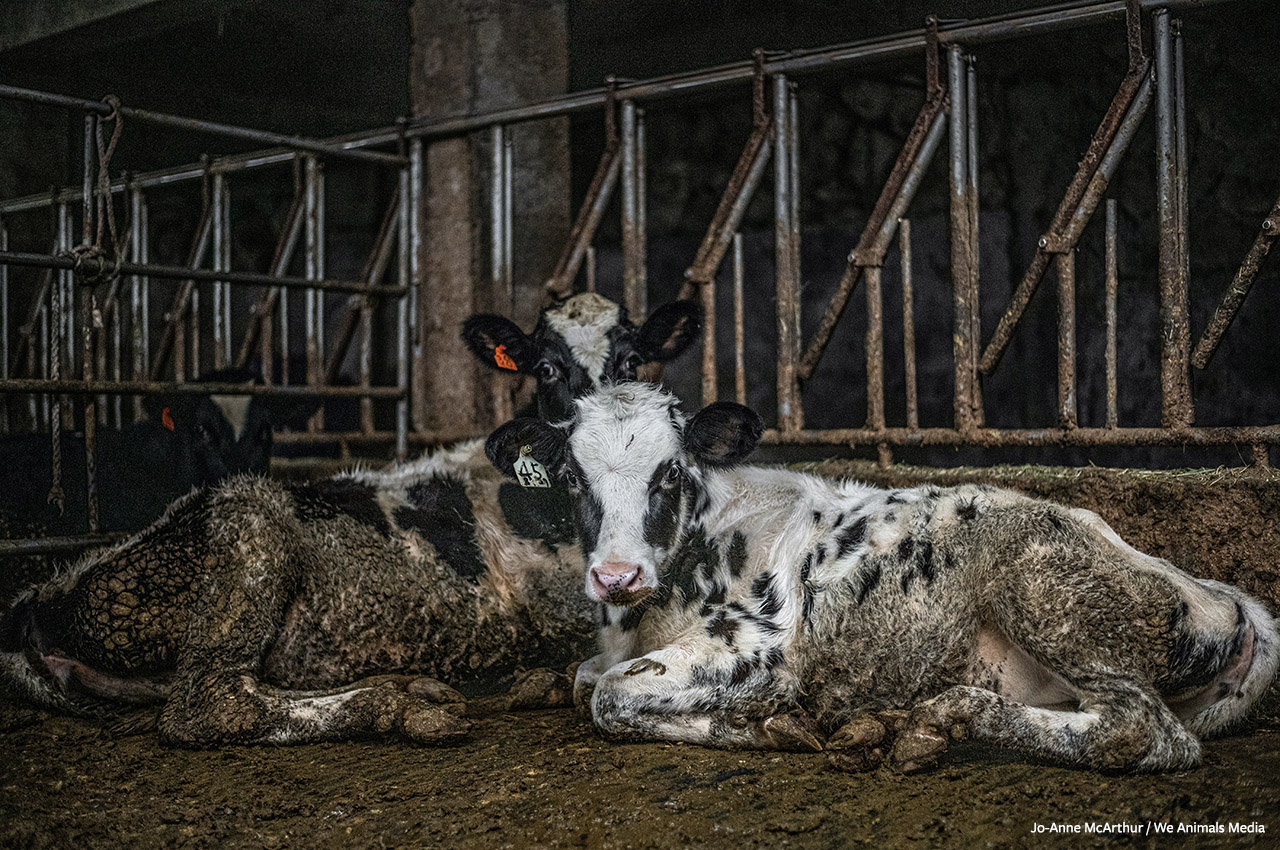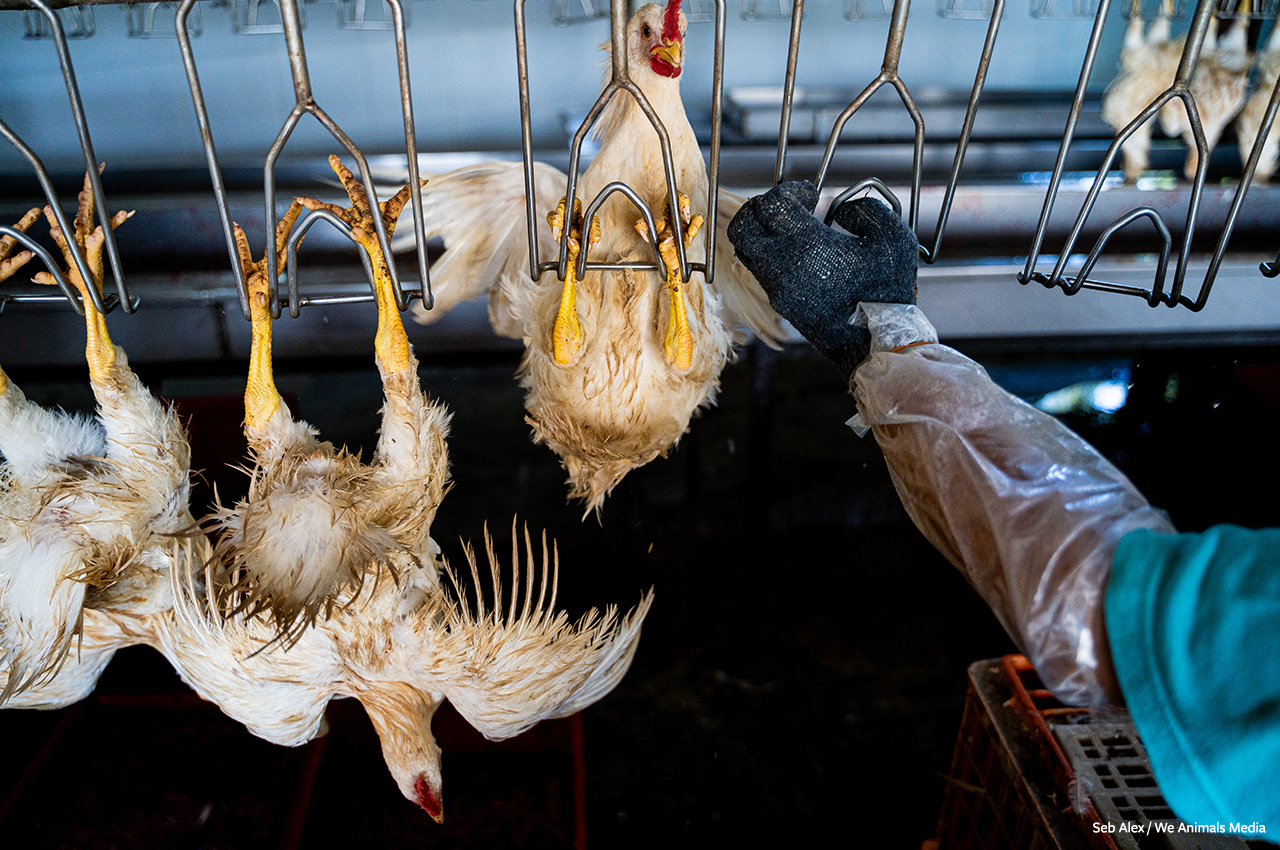Most standard-farming practices would be illegal if committed against dogs or cats, but exemptions allow the animal agriculture industry to mutilate, confine, and slaughter farmed animals with no legal consequences.
Mutilation
Farmed animals are subjected to many barbaric mutilations. They routinely have their beaks, tails, testicles, and horns sliced off. While each of these procedures inflicts excruciating pain, all are legally performed with no anesthetic.

Confinement
The living conditions on most farms are appalling. Animals are routinely confined to cages so small that they cannot turn around. This legal torture leads them to suffer severe physical and emotional anguish.
Breeding pigs spend nearly their entire lives confined to gestation crates, and egg-laying hens are forced into tiny battery cages with up to 10 birds.
During the horrific long-distance trips to the slaughterhouse, all animals are crammed onto trucks, unable to move. They are commonly deprived of food and water for days at a time, and are vulnerable to extreme weather conditions. Many animals suffer to death during transport each year. Those who survive the trip are weak and terrified upon arrival, so workers shock them with electric prods, forcing and dragging them off the trucks to their death.

Slaughter
Males born into the egg and dairy industries are of no economic value due to their inability to produce eggs and milk. As a result, millions of chicks and calves are brutally slaughtered shortly after birth, one of the most shocking legal farming practices.
Day-old male chicks are tossed alive into a grinding machine, while male calves are permanently separated from their mothers and confined to small crates until they are killed for veal or beef.

When female animals cease to produce enough eggs or milk, they are also sent to the slaughterhouse to face a terrifying death at only a small fraction of their natural lifespan.
In the animal agriculture industry, profit will always come before animal welfare. Numerous cruel practices are unavoidable when exploiting animals for food, and it is clear that we cannot depend on the law to effectively protect farmed animals. We as animal advocates must take matters into our own hands by no longer funding this cruelty. Luckily, with a wide variety of vegan alternatives on the market, it is easier than ever to make a difference for animals every time we sit down for a meal.
Find cruelty-free recipes and more information on how you can help animals by downloading our free Veg Starter Guide.

